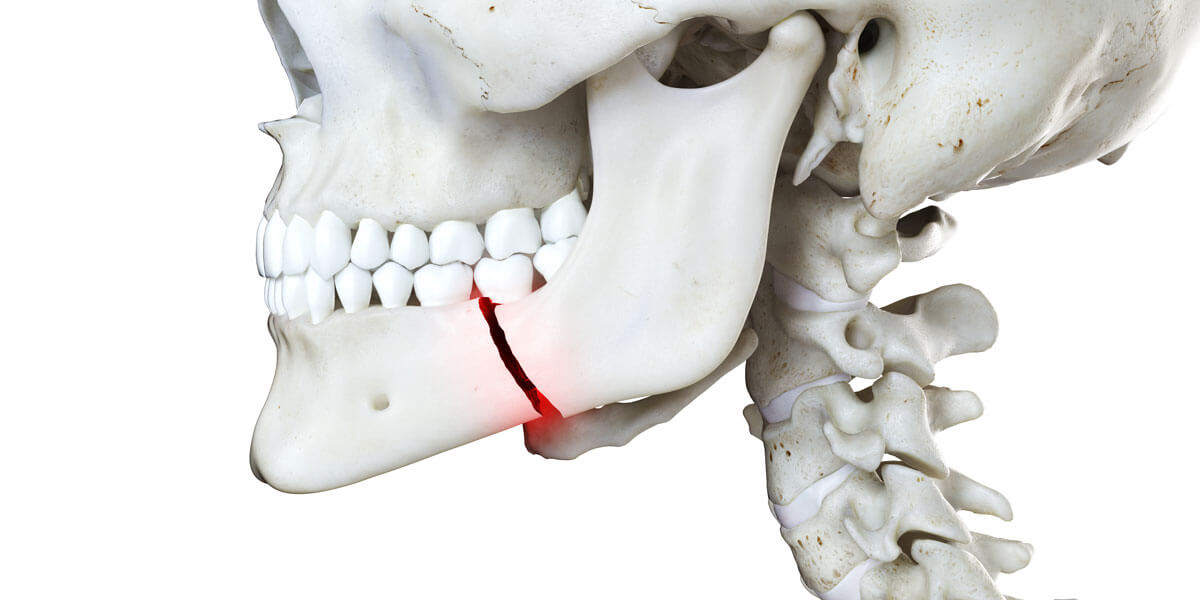
In medical terms, an injury to the face that can impact its bones, tissue, and skin is known as facial trauma, also known as maxillofacial trauma. Trauma impact to the face, jaws, eye sockets, and teeth can cause problems in breathing, chewing, swallowing, and even facial movements. Thus, trauma injuries also affect the physical appearance of one’s face.
Different types of facial trauma
There are three types of facial trauma:
- Soft tissue injury: An injury that tears the upper layer of skin, including inside the mouth, is considered a soft tissue injury. You may need stitches from an expert dental surgeon for such a facial injury.
- Facial fractures: The breaking of any bone of the face, like the nasal bone, cheekbone, jawbone, etc., is known as a facial fracture.
- Tooth and mouth injury (dentoalveolar injury): Any injury that affects your teeth or bones around the teeth classifies as a tooth and mouth injury.
Symptoms of facial trauma
- Unevenness or deformity in the bones of your face
- Soreness, pain, and swelling in the injured part of your face
- You may experience double vision due to bruising and swelling around your eyes
- Inability to breathe correctly and nose bleeding as a result of the injured nasal cavity
- Missing or broken teeth
If you experience any of these symptoms, get in touch with a dental surgeon in <city name> near you for detailed diagnosis and treatment.
Causes of facial trauma
Facial injuries or trauma are often the results of high-impact force. Common causes of facial trauma are:
- Vehicle accidents
- Tripping or slipping on the floor
- Physical violence
- Injury during sports such as football, cricket, basketball, etc.
- Accidents or mishappenings at construction sites
When do you need to visit a doctor?
You must contact a dental surgeon immediately if you experience a facial injury or trauma. Moreover, if you cannot move your jaw, speak, or eat anything, this indicates severe facial trauma, and thus, immediate consultation with a specialist is necessary.
Thus, it would help if you visited your dental specialist or book a consultation at a dental clinic in <city name>. You can also book your appointment at Apollo Dental, <city name>.
Call 18001020288 to book an appointment.
Complications associated with facial trauma
- Heavy bleeding
- Infection in the open wound
- Numbness of the impacted facial part
- Loss of vision (temporary or permanent)
- Imbalance facial structure
- Difficulty in biting, chewing and swallowing
These complications can be avoided by consulting a dental specialist near you.
Treatment for facial trauma
Based on the severity of the facial injuries, the course of treatment may involve ice packs, pain relievers, and antibiotics. In many cases, bandaging, stitching of the open wound, and surgery to realign the bones may also be needed. The main objective of proper treatment for facial trauma is:
- Stop bleeding
- Prevent long-term scars
- Resolve breathing issues
- Fix the facial fractures
- Realign the jaws and other facial bones
Conclusion
It is better to be aware of facial trauma and its seriousness. Facial injury or trauma requires timely medical care and attention to heal completely. The treatment may involve surgical procedures along with physiotherapy and medication. The best dental specialist in <city name> can offer well-suited comprehensive treatment and care to help you recover from any facial trauma.
If your cheekbone is broken, you will likely experience blurred vision, unusual flatness in the cheek, pain during jaw movement, and constant tingling sensation under the eye. Immediately reach out to a dental surgeon in such a scenario.
After surgery for a fractured cheekbone, it may take about 4-6 weeks to recover. The period may vary for each patient depending upon their overall health.
Yes, it would be best if you visited a dental specialist for a thorough diagnosis to ensure no underlying complications.



















































